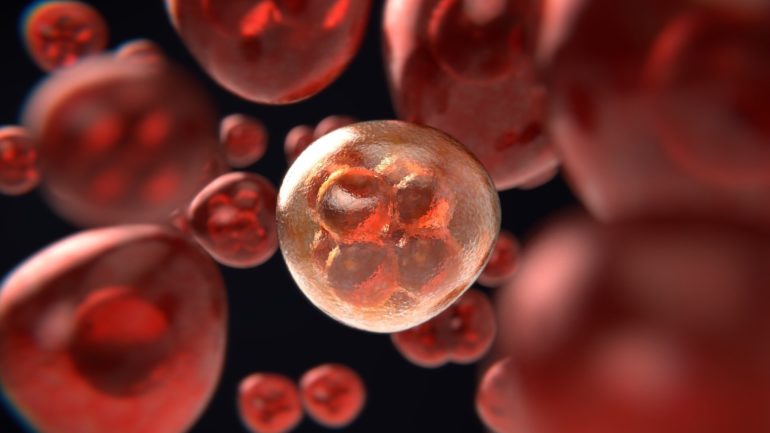A protein variant common in malignant bladder tumor cells may serve as a new avenue for treating bladder cancer. A multi-institution study led by UC Davis Comprehensive Cancer Center researchers found that targeting androgen receptors—a type of protein that is crucial for the function of testosterone—may destroy cancer cells.
The study, published in the April 28, 2021 issue of Cancer Letters is important because, for the first time, it showed that a newly identified form of the protein is commonly expressed in bladder tumors and depleting this protein caused the cells to die.
The research focused on androgens, hormones instrumental in male sexual development and growth of the prostate. One type of androgen is testosterone, a hormone that stimulates development of male sexual characteristics.
Androgen receptors are cellular proteins found in the tissues of several organs. These receptors enable the hormones to trigger certain responses in the body. Androgen hormones bind to the receptors, triggering expression of ribonucleic acids, which convert information stored in DNA into proteins.
Prostate cancer treatments include androgen deprivation therapy intended to block androgen receptors from binding to androgens, thwarting growth of malignant cells. Could bladder cancer be treated the same way?
“There is evidence that reducing androgen receptors leads to destruction of tumor cells—including those in the bladder,” said Maria Mudryj, senior author of the study and vice chair of education and outreach at the UC Davis School of Medicine Department of Microbiology and Immunology.
AR proteins could be key to understanding bladder cancer in men.
“Earlier studies of patients with bladder cancer showed that androgen receptors are more abundant in tumor tissue than in normal tissue, and in bladder tumors of males than in females,” Mudryj said.
The findings correlated with a study of men who had bladder cancer and were treated with drugs called 5α-reductase inhibitors, a class of drugs with antiandrogenic effects. Fewer men who had this treatment died, which suggests that the strategy of AR suppression may be effective for some patients.
Researchers don’t yet know, however, if testing patients for presence of the AR variants could be used to determine which patients would benefit from specific treatments. Additional studies are needed.
“Further research may uncover vulnerabilities that could be exploited to design new therapeutic strategies for effective treatment of bladder malignancies,” Mudryj said.
White button mushrooms could slow progression of prostate cancer
More information:
Kimberley Katleba et al, Depletion of androgen receptor low molecular weight isoform reduces bladder tumor cell viability and induces apoptosis, Cancer Letters (2021). DOI: 10.1016/j.canlet.2021.01.029
Citation:
Male bladder cancer vulnerability could lead to a new treatment approach (2021, April 28)
retrieved 28 April 2021
from https://medicalxpress.com/news/2021-04-male-bladder-cancer-vulnerability-treatment.html
This document is subject to copyright. Apart from any fair dealing for the purpose of private study or research, no
part may be reproduced without the written permission. The content is provided for information purposes only.



